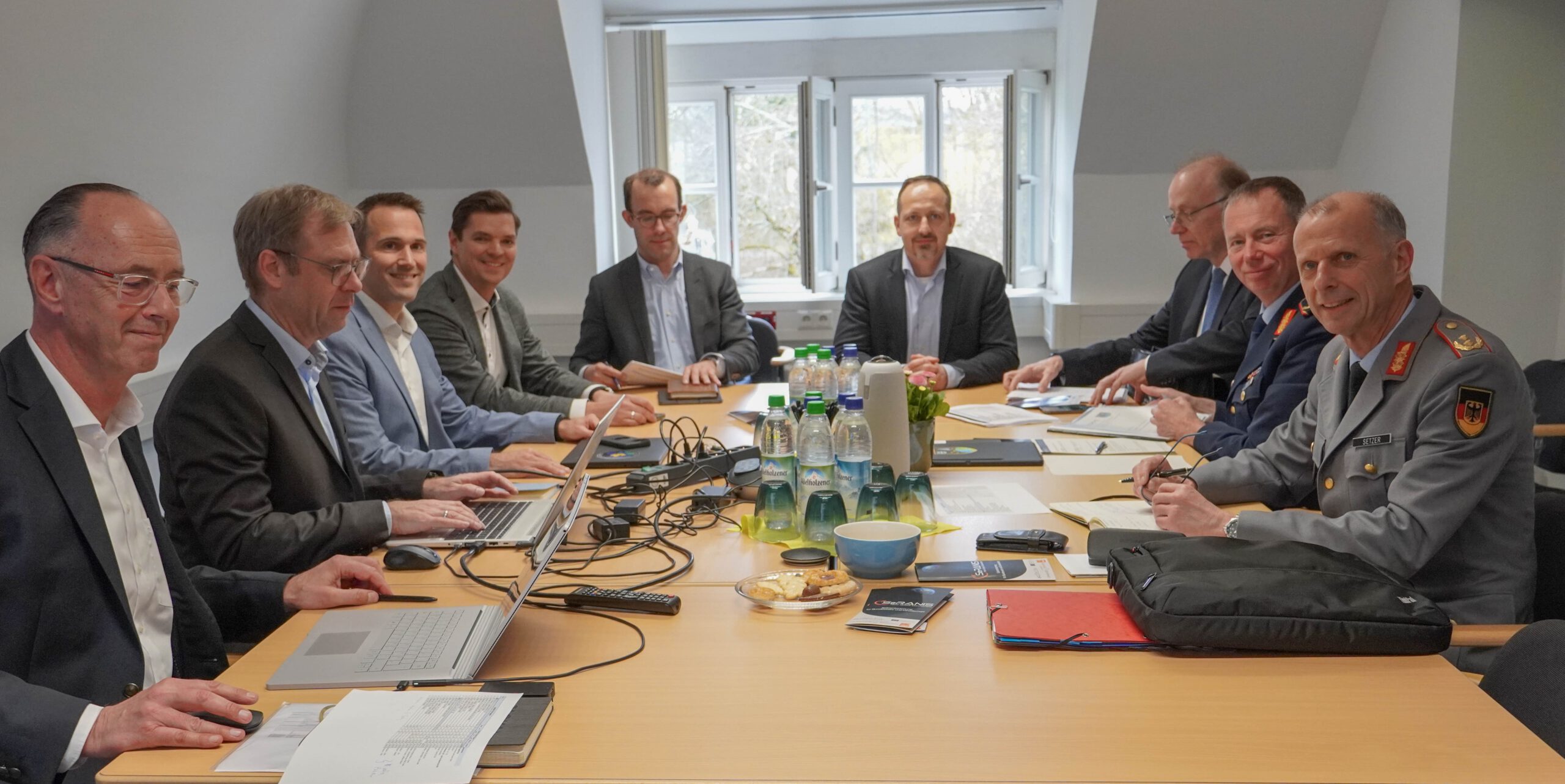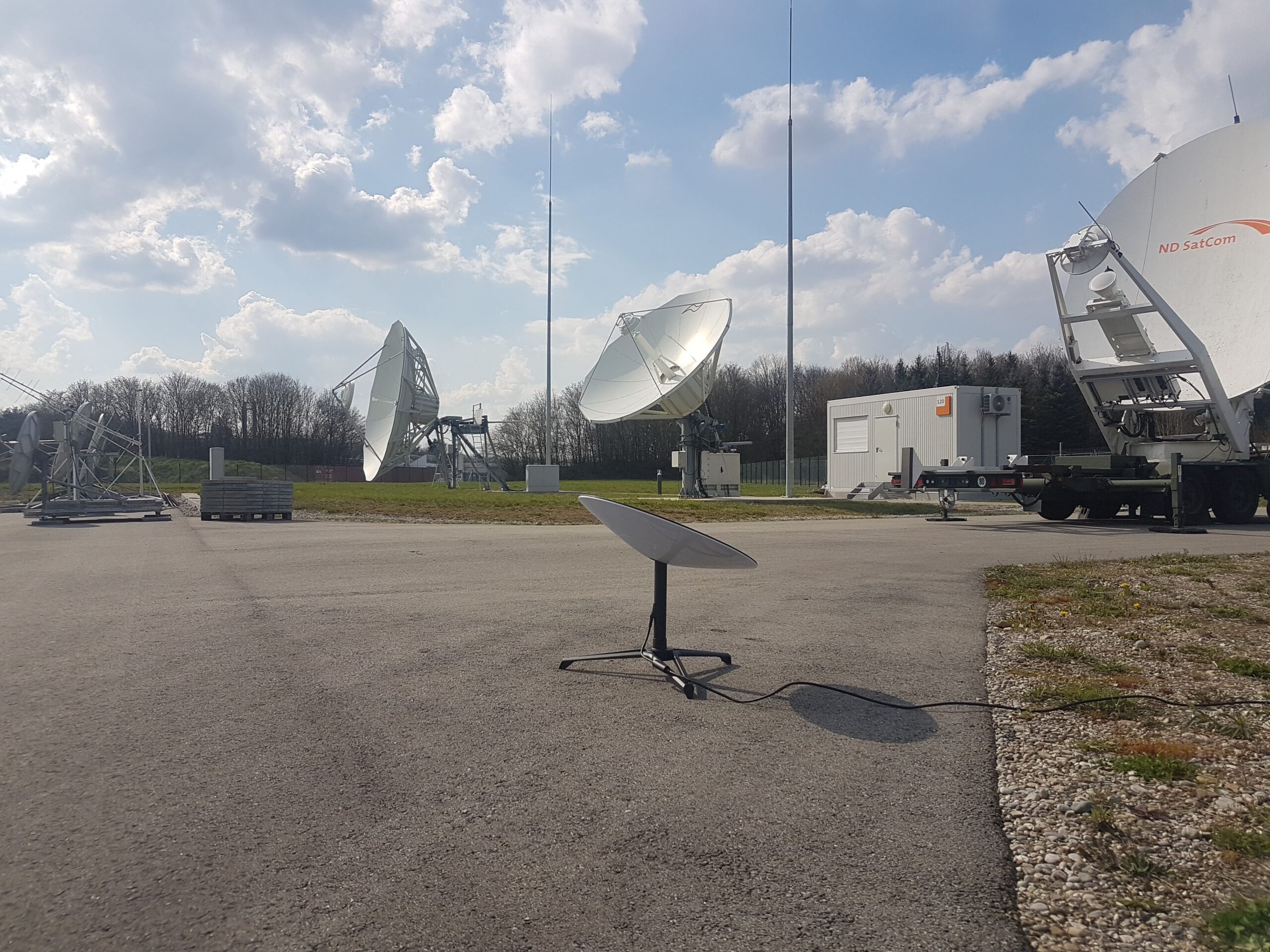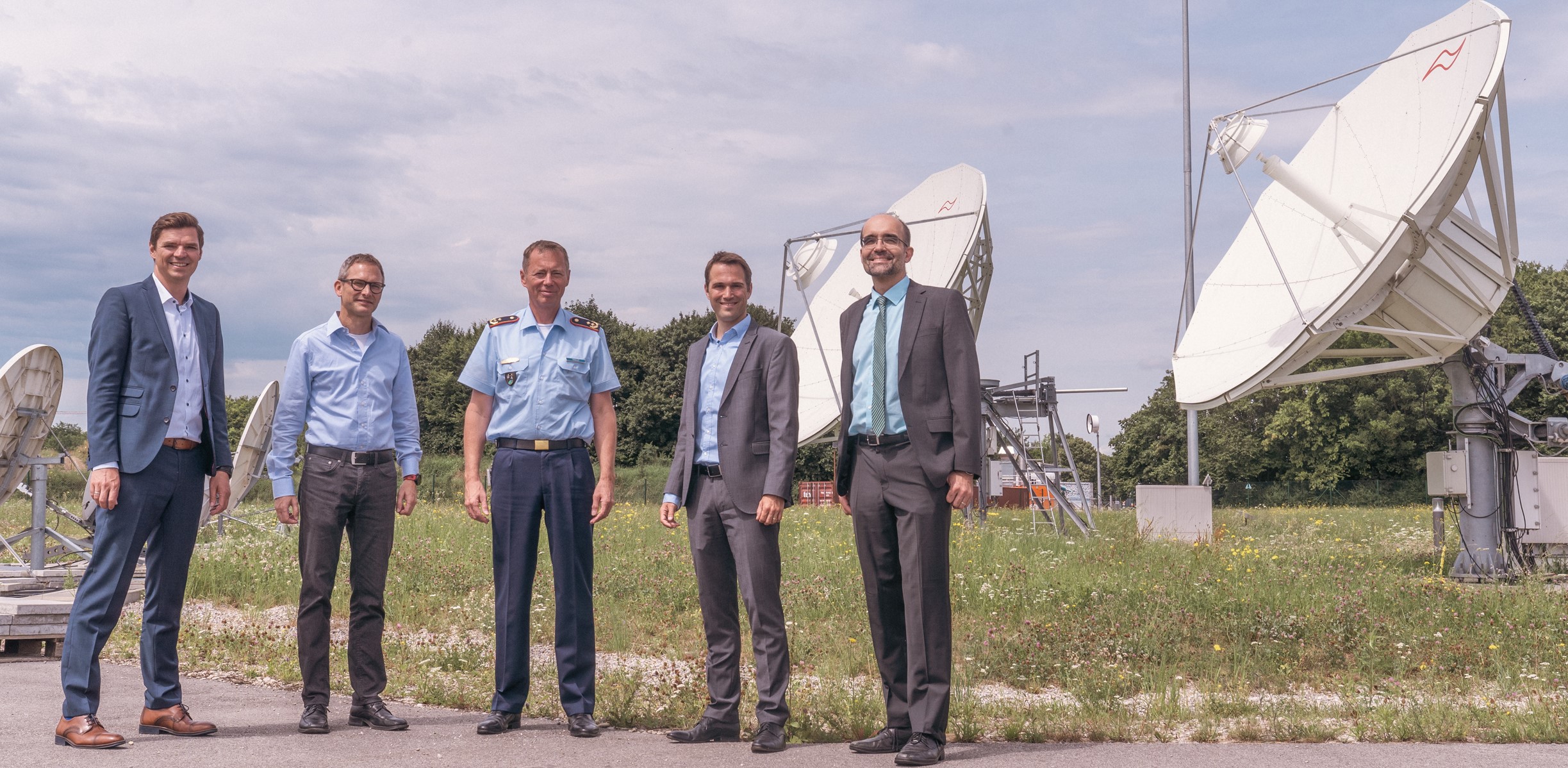Neubiberg, 03/14/2024: On March 13 and 14, 2024, the Critical Design Review (CDR) of the SeRANIS project took place with the project management and the top-class CDR expert panel from the Bundeswehr and space research.
During this event, the SeRANIS team was able to demonstrate its innovative and sustainable design. With a particularly high number of experiments, the project stands out from many other missions and thus provides a basis for the establishment of a long-term Space Innovation Hub at the University of the Bundeswehr Munich.
In the CDR, SeRANIS was examined by the prestigious panel – from the feasibility of the experiments to the innovation value and the methods of mission planning. Major General Setzer‘s conclusion after two days of CDR: “I am pleased to say that the SeRANIS project is on the home straight. A great achievement by everyone involved!” Project head Prof. Dr. Andreas Knopp is also proud of the impressive work that his team has achieved in a short period of time. He was particularly pleased that the Review Board recognized this achievement and “gave us such a positive report!”.
Interdisciplinary Technological Diversity with a New-Space Character
SeRANIS is the Bundeswehr’s first LEO small satellite mission. With over 20 experiments from various disciplines – from space communication and earth observation to new propulsion technologies – SeRANIS stands out from other satellite missions due to its interdisciplinary approach. In addition to top academic research, the project also provides a direct benefit for the Bundeswehr. Major General Setzer emphasizes: “SeRANIS combines a large number of coordinated technologies so that a completely new approach for the digitalization of space-based services is emerging, which is an essential capability of the CIDS dimension, also as a driver of the digitalization of the Bundeswehr.”
Traditional satellite projects are often characterized by complex and inflexible processes that make agile action difficult. SeRANIS, on the other hand, uses innovative “New Space” methods that enable faster planning and dynamic adaptation to constantly changing requirements. This was unanimously confirmed by the experts. For Major General Setzer, it is an excellent example of how highly innovative experiments can be tried out in space in a short period of time. “For us as CIDS, responsible for mission support from space, this is of particular importance! This approach by New Space creates new opportunities for the future.” Major General Traut is also impressed by the “innovative power, with which a young team develops an impact to quickly overcome the high complexity of the project with new methods“ and adds: “This new unique experimental project shows how close science and high-quality applications are to each other.”
From the Precurser Mission to the Space Innovation Hub
After a thorough review, the CDR Board came to the conclusion that SeRANIS, as a “Precurser Mission“, would gain important insights and experience for future explorations. This represents a possible cornerstone for the establishment of a Space Innovation Hub at the University of the Bundeswehr Munich. This would enable the Bundeswehr to realize further space projects with high military and societal relevance in the future with a speed and quality that was previously almost unimaginable. Dominik Lang from OHB/LuxSpace confirms that this is the “basis for user and industry for a series of decisive capabilities that we will need in the next decade for security in and from space”. In summary, it can be said that SeRANIS has successfully demonstrated with this CDR that the project has set a promising course for an innovative and rapid transition of the mission beyond the launch into a permanent Space Innovation Hub.

Members of the prestigious CDR Review Board
- Major General Jürgen Setzer, Vice Chief of the Cyber and Information Domain Service and Bundeswehr Chief Information Security Officer
- Major General Michael Traut, Commander of the Space Command of the Bundeswehr
- Marco Fuchs, Chief Executive Officer of OHB SE
- Dominik Lang, Director Business Development at OHB SE
- Dr. Wenschel Lan (Naval Postgraduate School)
- Dr. Giovanni Minelli (Naval Postgraduate School)
About SeRANIS
SeRANIS is a project funded by dtec.bw at the University of the Bundeswehr Munich. The dtec.bw is a scientific center that is supported by both universities of the Bundeswehr and is part of the German government’s economic stimulus program to tackle the COVID-19 crisis. The University of the Bundeswehr Munich is in charge. The financial resources that dtec.bw has received from the Federal Ministry of Defense (BMVg) will be used at both universities of the Bundeswehr to fund research projects and projects for knowledge and technology transfer, in particular to promote startups. With its inclusion in the German Recovery and Resilience Plan (GRRP), dtec.bw is funded by the European Union – NextGenerationEU.
SeRANIS has a budget of 55 million euros, with an option for a further 20 million euros until the end of 2026. This shows that even ambitious projects can be successfully driven forward despite difficult framework conditions. The successful completion of the CDR and the positive evaluation by the expert panel confirm the strategic value of SeRANIS for the Bundeswehr and Germany’s security in a global context.





